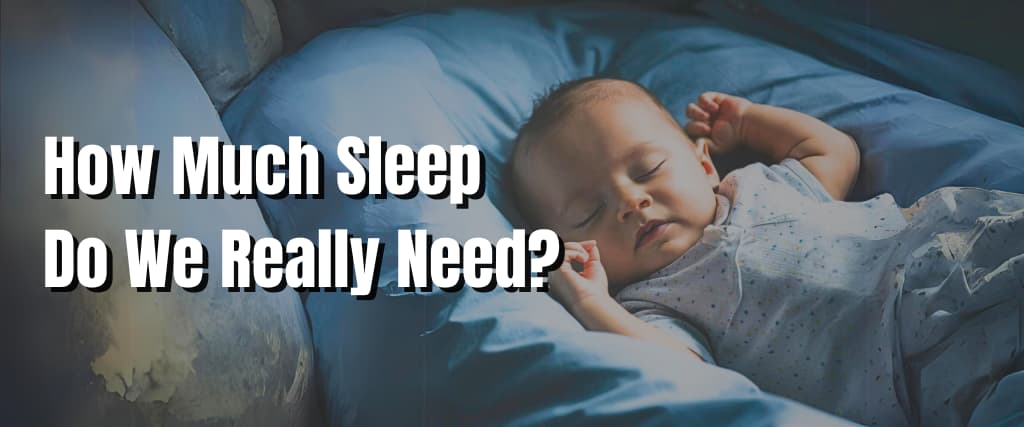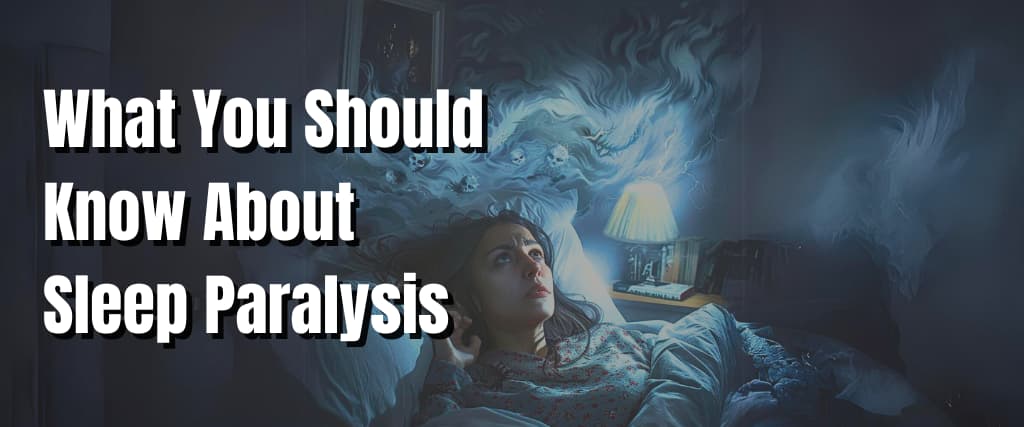Sleep holds numerous benefits to young children. In the early stages of life, an individual undergoes great changes that affect the body, brain, behavior, and emotions that draw up a stage for their growth through childhood and adolescence. Due to this, it is normal for guardians to want to ensure that their kids get the recommended amount of sleep. Here is a recommendation for total daily sleep needs according to age by the National Sleep Foundation (NSF).
| Age Range | Recommended Hours of Sleep | |
| Newborn | 0-3 months old | 14-17 hours |
| Infant | 4-11 months old | 12-15 hours |
| Toddler | 1-2 years old | 11-14 hours |
| Preschool | 3-5 years old | 10-13 hours |
| School-age | 6-13 years old | 9-11 hours |
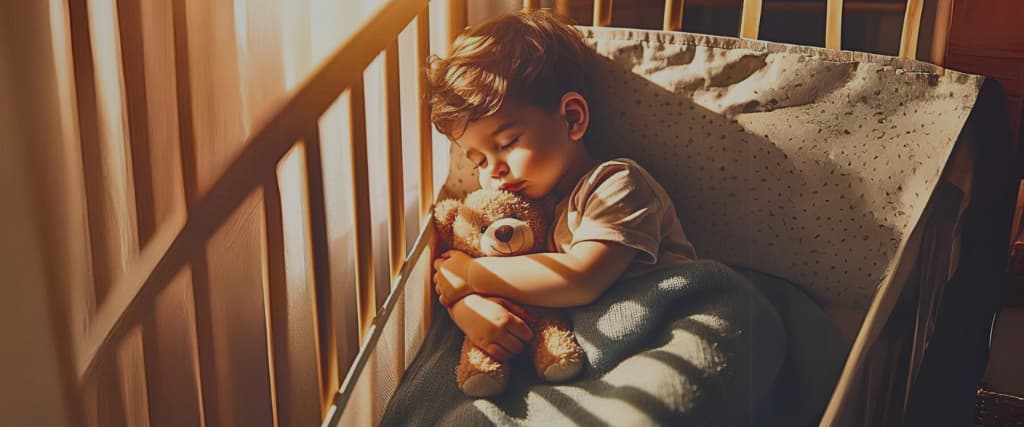
The table indicates sleep ranges, including the night and during naps. According to NSF, an hour less or more is appropriate for some children. This guideline can benefit parents, but they need to understand that sleep varies from children to day today.
Sleep needs evolve as children get older. However, several factors can influence the proper amount of sleep for babies and kids, and comprehending these can serve parents better in encouraging healthy sleep for their kids.
How Much Sleep Do Babies Require?
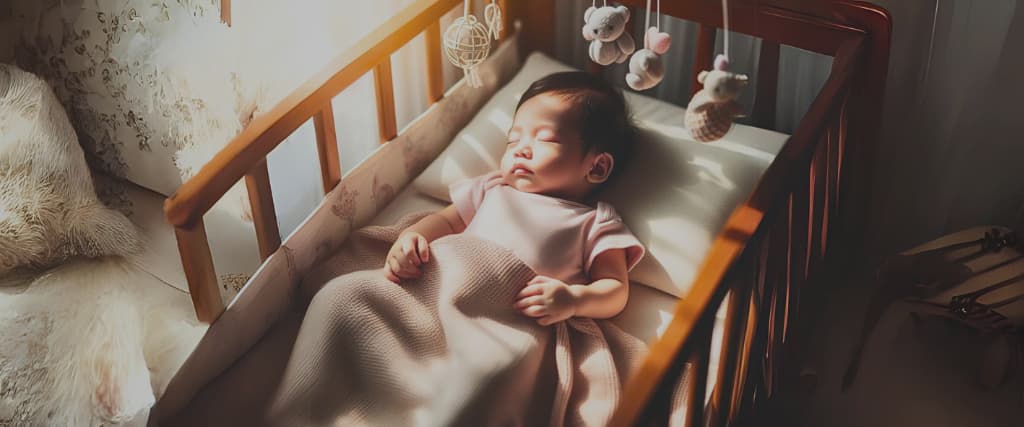
It is normal for babies to spend their day sleeping; however, the amount of sleep is dependent on their age.
Newborns between 0-3 Months Old
Newborns are supposed to spend 14-17 hours of sleep according to the recommendations of the National Sleep Foundation. This time is usually broken down into shorter periods due to the need for feeding.
It is pretty rare for newborns to sleep the whole night without waking up, even though this is when the bulk of total sleep happens. To create time for feeding as parents, you must develop a rough schedule to accommodate feeding at nighttime and during day naps.
In addition, parents need to be aware that fluctuations in sleep patterns in newborns are normal and are not an indication of a sleep disorder. Due to this reason, the American Academy of Pediatrics and the American Association of Sleep Medicine have decided not to recommend the quantity of sleep for babies between 0-4 months.
Infants between 4-11 months
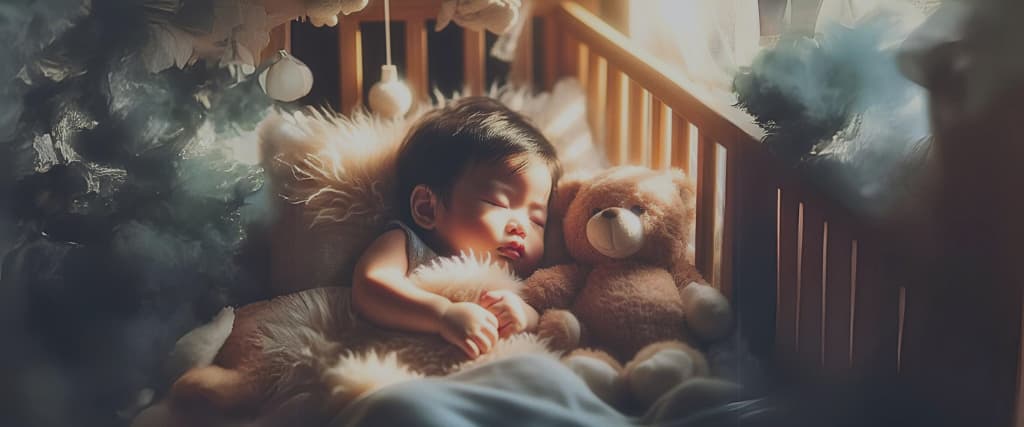
The NSF suggests that infants in this age group get between 12-15 hours of sleep each day. At the same time, the AAP and AASM recommend 12-16 hours of sleep. It is also usual for infants to sleep for 3-4 hours during the day.
Why Do Babies Sleep So Much?
Babies utilize most of their time sleeping as this is a period of vital growth. Because of sleep, the brain develops, engaging in activities that facilitate thinking and builds networks, enables learning, and allows the formation of behavior. On the other hand, sleep and nutrition enable the baby to grow physically, get bigger and obtain enhanced motor skills.
Is It Usual For Babies To Take Naps?

It is normal for babies to take a portion of their sleep during the day. However, total nap time decreases as they get older. Newborns nap for at least 3-4 hours, while infants nap for 2-3 hours every day.
Nap in babies is not only normal, but it holds some benefits. Research indicates that naps help in specific memory consolidation and assists a more generalized memory for brain development and learning.
When Do Babies Begin Sleeping all Night Long?

If you are an adult who enjoys a peaceful night’s sleep 7-9 hours a day without interruptions, having a baby can give you a new experience. Although babies spend most of their time sleeping, it is rare for them to sleep without waking up through the night.
At around six months, babies are thought to start consolidating their night sleep, making it possible for them to sleep through the night. However, research indicates that this period can vary. A significant number of 6 months and 12 months babies did not sleep for 6-8 hours continuously at night in a study.
| Age | % Not Sleeping 6 Plus Hours Continuously at Night | % Not Sleeping 8 Plus Hours Continuously at Night |
| 6 months | 37.6% | 57.0% |
| 12 months | 27.9% | 43.4% |
Most parents always worry about their children taking too long to start sleeping through the night. Still, the same study revealed no impacts on a child’s mental or physical development if the babies were unable to sleep for consecutive periods at night.

As time progresses, parents should expect their babies to start sleeping longer at night. However, no study shows that sleeping the whole night is essential for infants compared to the total regular sleep time.
Bearing this in mind, there are definite steps that parents can adopt to help longer periods of continuous night sleep. If there are any concerns about your child’s frequent nighttime awakening, it should be discussed with the pediatrician familiar with the baby’s condition.
How Much Sleep Do Premature Babies Need?
Unlike full-term babies, premature babies often require more sleep. It is usual for premature babies to spend about 90% of their time asleep. However, the actual quantity of sleep for a premature newborns depends on their overall health and how premature they were.
Amid the first 12 months, the sleep pattern of premature babies comes to resemble those of full-term infants, but they often experience lighter sleep, more sleep, and less consistent sleep.
How Does Feeding Affect Sleep for Babies?
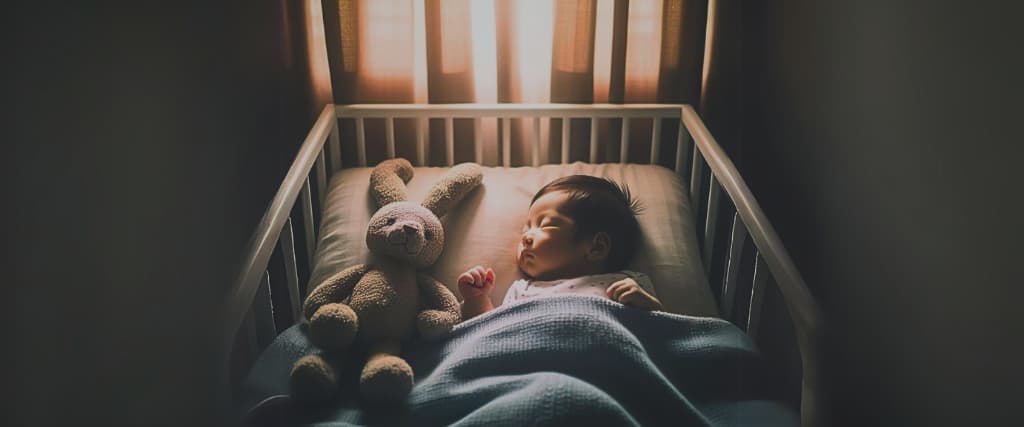
When it comes to feeding methods, there is still debate on how or whether a baby’s sleep is affected by feeding methods. Some research shows that breastfed babies wake up at night frequently, while other studies indicate a slight difference in the sleep patterns of formula-fed and breastfed babies.
Apart from sleep, the AAP recommends that mothers breastfeed for 6 months exclusively and continue with complementary breastfeeding for one year or more. Although not well established, there is some evidence that breastfed babies have better sleep in their preschool years.
What Can You Do If Your Baby Doesn’t Sleep Enough?
If you have worries about your baby’s sleep, you should talk to a pediatrician as a parent. Having a sleep diary to keep track of your child’s sleep patterns may help your doctor determine if your baby’s sleep is normal or reflects a potential sleeping disorder.
Behavioral change may inspire more extended sleep sessions for babies who find it difficult to sleep through the night. For instance, reducing the speed of response to awakenings may boost self-soothing, and slowly pushing back bedtime may create more sleepiness that helps a baby stay asleep longer.
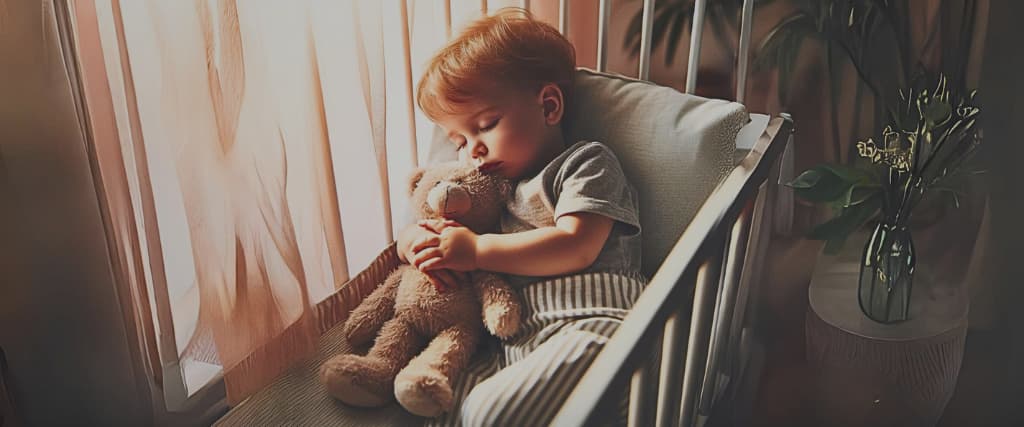
Improving sleep hygiene is also essential. Ensure that you create a consistent sleep routine and the baby’s sleep environment is calm and quiet. In addition to this, infant sleep hygiene should also include crucial safety measures to prevent sudden infant death syndrome and suffocation.
What Amount Of Sleep Do Kids Require?
The quantity of sleep that kids need changes slowly as they get older. Their sleep becomes increasingly similar to that of adults as they move from toddlers to school-age.
Although kids require little sleep than babies, sleep remains essential in their development and their overall health. Inadequate sleep at a young age is linked to mental health conditions, weight, cognitive performance, and behavior.
Toddlers between 1-2 Years
The recommendation for sleep in toddlers is 11-14 hours each day. This is 1-2 hours less of sleep compared to infants. At the start of this period, two naps a day is usual, but it is not surprising for older toddlers to nap only in the afternoon.
Preschool between 3-5 Years
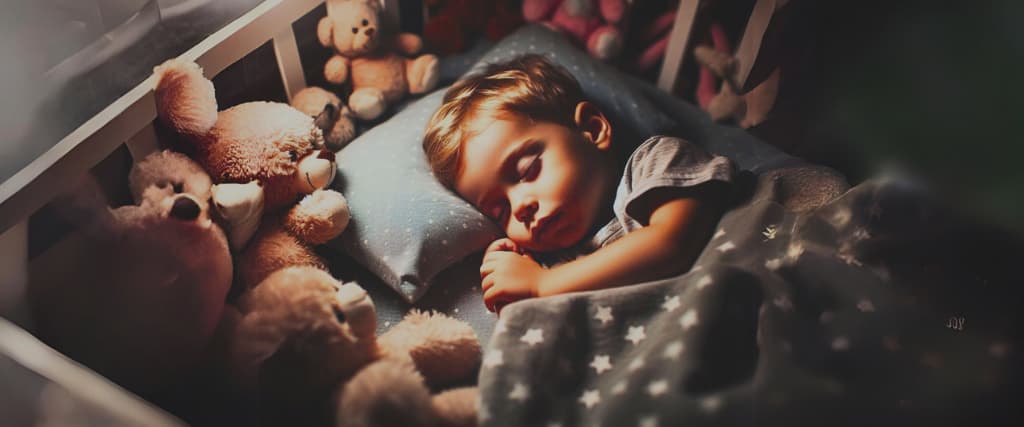
According to NSF and AASM guidelines, preschool-aged children aged 3-5 years old should get around 10-13 hours of total sleep each day. Naps at this age may get shorter, or preschoolers may stop napping regularly.
School-Age between 6-13 Years
The NSF recommends 9-11 while the AASM recommends 9-12 hours of sleep for school-aged children. As school-age comprises a broader set of ages and thus sleep can vary significantly. In this age group, the young school-age children require more sleep than middle-aged children.
When school-age children start experiencing puberty and adolescence, sleep patterns change distinctly, resulting in changes confronting teens and sleep.
Is It Usual for Kids to Take Naps?
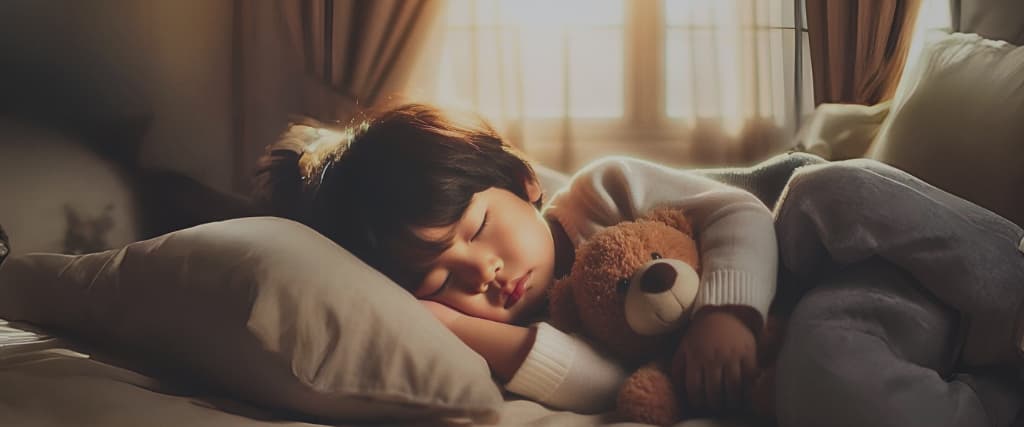
Taking naps is normal for toddlers and preschool-aged children. During this period, napping continues to offer benefits for thinking and memory.
During early childhood, naps can slowly phase out, becoming shorter and less frequent. This might occur naturally as a result of childcare and school schedules.
Napping can stop at around age five. However, it is important to remember that nap preference can differ for each child. According to one study, some children sleep easily in schools with nap time, but 42.5% fall asleep sometimes, and others do not at all.
Some older children may also be motivated to sleep and can benefit from it. In a study in China where a nap is culturally appropriate, children in grades 4-6 who took frequent naps after lunch exhibited better academic achievement, behavior, and general happiness.
Studies concerning napping and precise timing of sleep episodes are indecisive, and acknowledge what’s ideal for a child can significantly change over time and may not be a preference of another kid of similar age.
What To Do if Your Child Doesn’t Sleep as Required
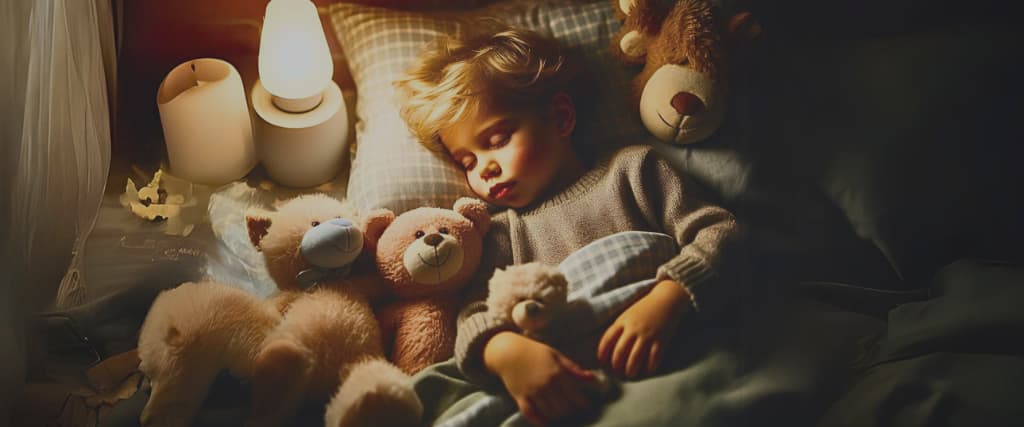
An estimate of about 25% of children deals with excessive daytime sleepiness or sleeping disorder, which can also affect teens and children. Sleep challenges vary; therefore, it is appropriate for parents to talk with their children and inform the pediatrician if the signs are severe or persistent, like insomnia.
Assisting your kid to sleep often begins by providing a peaceful, comfortable, and quiet environment. Reducing distractions from electronic devices or TV and having the right mattress can make it easier for kids of any age to get reliable sleep.
In addition, creating healthy sleep habits, consisting of a consistent sleep schedule and pre-bedtime routine, can emphasize the benefits of bedtime and reduce sleep variation from one night to the next. Allowing children to maximize and use up their energy during the day can make it easier for them to fall asleep and stay asleep through the night.




